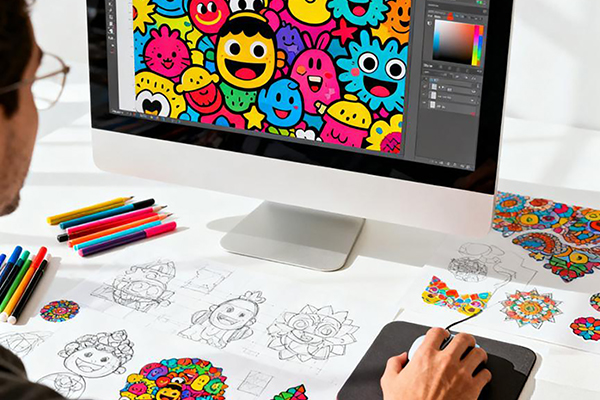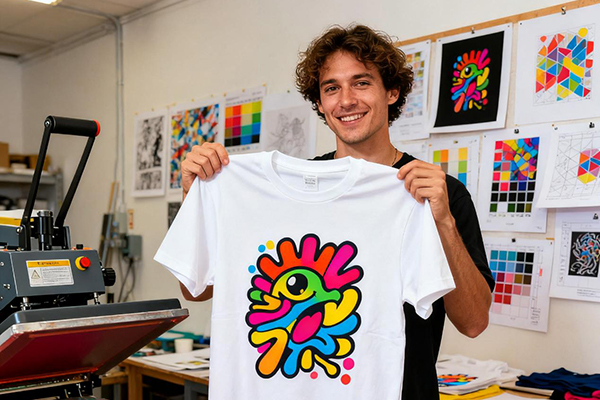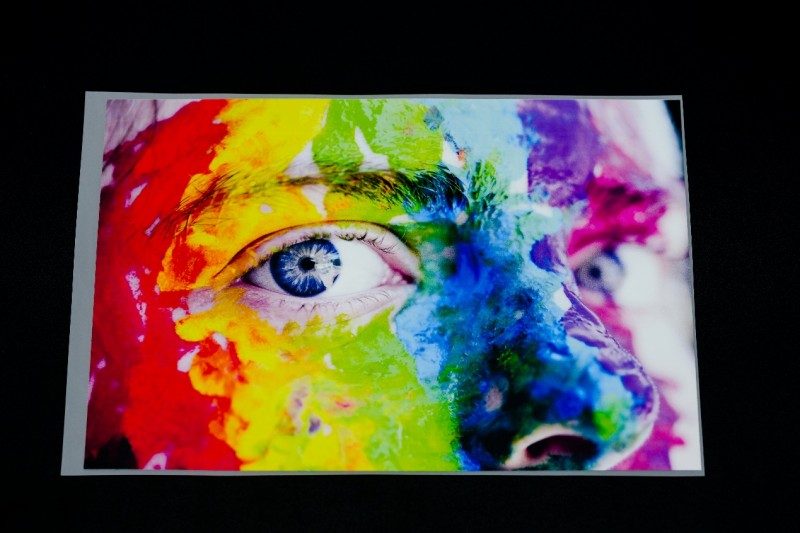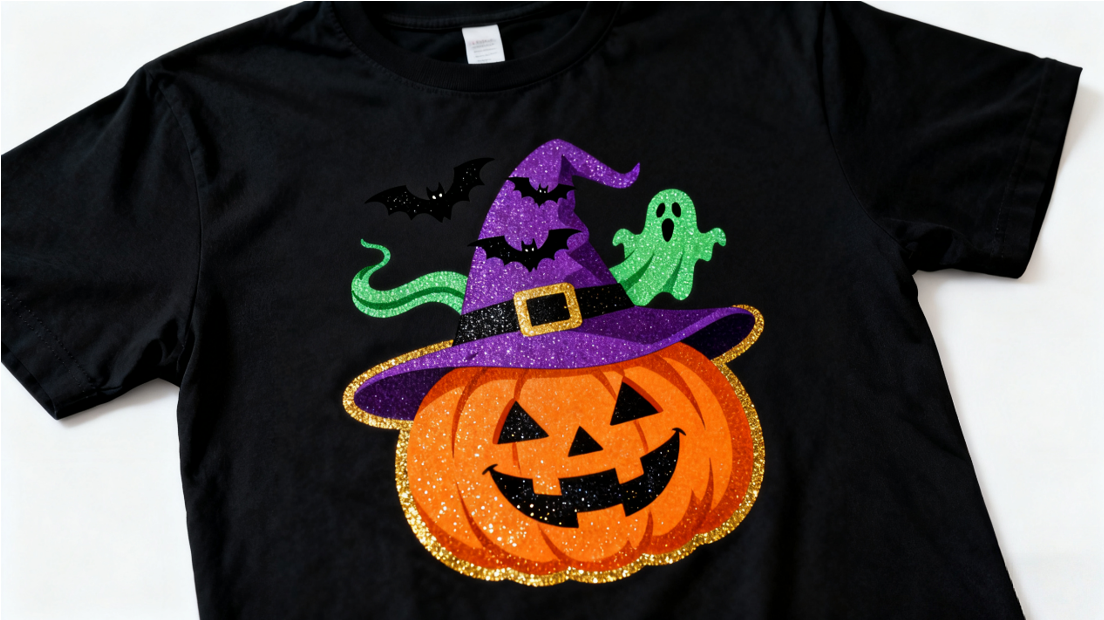Direct-to-Film (DTF) Printing: By Size or Gang Sheet?
When diving into Direct-to-Film (DTF) printing, on...
MoreDirect to Film (DTF) transfer sheets represent a significant technological advancement in the garment printing industry, enabling high-quality, durable designs on a wide variety of fabrics. This method involves printing a design onto a special PET film, which is then coated with a hot-melt adhesive powder and cured. The final step uses a heat press to transfer the design from the film to the substrate. Unlike Direct to Garment (DTG) printing, which is primarily limited to cotton, DTF transfers can be applied to cotton, polyester, blends, nylon, and even leather or denim, offering unparalleled versatility. The process is renowned for its ability to produce vibrant colors, intricate details, and a soft-hand feel that is highly desirable in custom apparel, sportswear, and promotional items. The growing adoption of DTF technology is largely due to its flexibility, cost-effectiveness for small to medium batches, and its superior performance on dark-colored and synthetic fabrics where other methods often struggle.
Market analysis and user reports consistently highlight the operational advantages of DTF transfer sheets. Industry forums and case studies from print shops indicate a substantial increase in production efficiency. For instance, a well-documented workflow shows that a small printing business can produce up to 50-70 high-quality transfers per hour with a semi-automatic powdering station, a significant throughput compared to more manual-intensive methods. The key data point driving adoption is the lower cost-per-print for orders ranging from 1 to 100 pieces, especially on polyester blends, where DTF outcompetes DTG and heat transfer vinyl (HTV) in both material cost and application time. Search trend data from platforms like Google Trends reveals a steady global increase in queries for "DTF printing" and "DTF transfers," with a notable surge in regions with strong textile manufacturing bases. Furthermore, user-generated content on platforms like YouTube, featuring durability tests, demonstrates that properly applied DTF prints can withstand over 50 industrial wash cycles without significant cracking or fading, meeting and often exceeding industry standards for garment longevity. This empirical evidence from the user base solidifies DTF's reputation for durability and quality.
From an SEO perspective, content surrounding DTF transfer sheets must align with common commercial and informational search intents. High-volume keywords identified through search engine results include "DTF vs DTG," "how to use DTF transfers," "DTF printer price," and "best DTF film." A successful product page must integrate these terms naturally to capture targeted traffic. Google's E-A-T (Expertise, Authoritativeness, Trustworthiness) guidelines require content to be accurate and supported by experience. Therefore, descriptions should reference verifiable facts, such as the common print resolution of 1440 dpi achievable with DTF printers or the standard heat press settings of 160-165°C for 15-20 seconds. Including structured data markup, such as FAQ schemas for common application questions or product schemas with specifications, can significantly enhance search visibility and click-through rates. The content must be original and provide clear value, avoiding keyword stuffing, to rank favorably for competitive terms like "custom DTF transfers" or "wholesale DTF sheets."
The future of DTF technology is closely tied to material innovation and market expansion. Current research and development, as reported in trade publications, focus on enhancing the eco-friendliness of the process by developing water-based adhesives and biodegradable PET films to address environmental concerns. Performance data from manufacturers indicates that newer generations of DTF inks offer a wider color gamut, particularly in the red and blue spectra, resulting in more vibrant prints that rival traditional screen printing. The market is also seeing a trend towards all-in-one DTF printers and automated powdering systems, which reduce the learning curve and labor costs, making the technology accessible to a broader range of businesses. As the global custom apparel market continues to grow, DTF transfer sheets are positioned as a key enabling technology, with their application expanding beyond clothing into sectors like home textiles, accessories, and soft signage, driven by their proven versatility, reliability, and cost-effectiveness.
Select the most popular foreign trade service products to meet your diverse needs
Learn more about the dynamics and professional knowledge of the foreign trade industry

When diving into Direct-to-Film (DTF) printing, on...
More
Direct-to-Film (DTF) transfers offer a fantastic w...
More
When it comes to transferring designs onto objects...
More
If you’re new to garment printing, using DTF film ...
More
Make your Halloween tees shine with SAILLAGE’s DTF...
More
BOPP Film, or Biaxially Oriented Polypropylene Fil...
MoreSelect the most popular foreign trade service products to meet your diverse needs
Explore more content related to foreign trade services

Tel: +86 17706217416
Add: Building L2A, No. 520, Lane 1588, Zhuguang Road, Hongqiao World Center, Qingpu District, Shanghai, China
User Comments
Service Experience Sharing from Real Customers
Jennifer Martinez
Graphic DesignerThese DTF transfer sheets are absolutely fantastic! The color reproduction is vibrant and the transfer process is so smooth. My custom t-shirt designs look professional and the prints withstand multiple washes without cracking. Highly recommended for any designer!
David Chen
Print Shop OwnerAs a print shop owner, I've tried many transfer sheets and these DTF sheets are game-changers. The adhesion is perfect on various fabrics, and the detail resolution is incredible. My customers are thrilled with the quality. This has significantly improved our production efficiency.
Sarah Johnson
Small Business OwnerI run a small custom merchandise business and these DTF transfer sheets have transformed my operation. The ease of use and consistent quality make them worth every penny. The transfers work perfectly on cotton, polyester blends - everything I've tried. Customer satisfaction has skyrocketed!
Michael Thompson
Art TeacherI use these DTF transfer sheets for my art class projects and they're amazing. The students can create their designs and see them come to life on fabric. The transfers are durable and the colors stay bright even after washing. Excellent educational tool and professional quality!